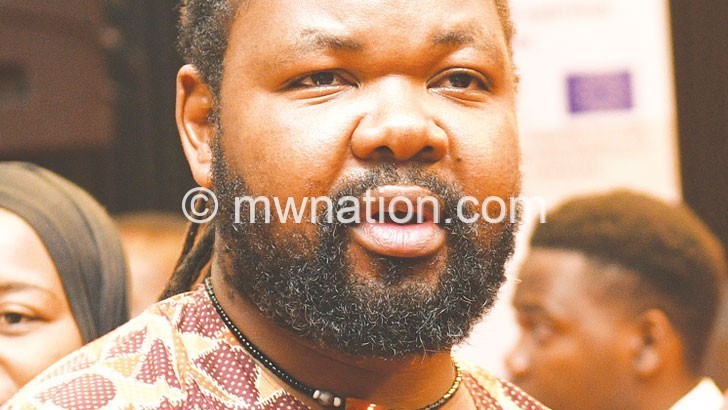MCP, UTM snub MBC
Malawi Congress Party (MCP) and UTM have turned down a request by MBC to submit prerecorded campaign messages for airing on the station.
The two opposition political parties have since declared loss of trust in the public broadcaster, which they say is highly compromised and biased towards the governing Democratic Progressive Party (DPP).
By law and as dictated by the Malawi Electoral Commission (MEC), Malawi Broadcasting Corporation (MBC) was supposed to open up its airwaves to all participating political parties in the May 21 Tripartite Elections when the campaign period opened on March 19 this year.

The electoral body, through its chief elections officer Sam Alfandika, on March 1 2019 wrote political parties, (nine then), requesting them to submit three-minute recorded campaign messages to be aired on MBC radios and television.
The parties were also given an opportunity to have their presidential candidates interviewed for a 30-minute programme each on MBC.
But UTM and MCP, the main challengers to DPP said, in separate interviews they have no confidence in MBC which they say has been campaigning for DPP for the past four years.
UTM publicity secretary Joseph Chidanti-Malunga said his party cannot waste its precious time to arrange and present prerecorded messages to MBC, let alone to have
their president Saulos Chilima present himself for a 30-minute interview.
He said they got the communication through MEC, but the party does not want to be hoodwinked because they are convinced MBC is not sincere.
“We know the masters they are serving. Who do they want to blindfold? We know those messages were intended to be aired in some obscure programme, when on the other hand, they are covering President Peter Mutharika live and other DPP officials in all their campaign rallies, all day on both radio and TV.
“As if that’s not enough, they feature them in news bulletins and then have Mutharika’s campaign
rallies enjoying repeats in the evenings. And then they want to hoodwink us with three-minute programmes through prerecorded messages, seriously? We say no, thanks,” said Chidanti-Malunga.
He said MBC is supposed to function without bias and independent of any person or entity.
On his part, MCP campaign director Moses Kunkuyu said his party turned down the request on principle, arguing that even where they had to provide the requested prerecorded messages, they are aware MBC is DPP’s campaign tool and their request is in not in good faith.
“Why should they ask for prerecorded messages? If they were sincere, we expected them to use the same resources they use when covering the governing DPP campaign rallies to come to our rallies and cover us as well. We know this is just an attempt to cover up their shameful biasness,” he said.
But MBC director general Aubrey Sumbuleta said in response to a questionnaire on Thursday, that their present obligation is to level the playing field for all competitors by according them access to their campaign messages so that Malawians can hear what they are offering.
“Our obligation is to offer the service, but it is up to the concerned parties to take up the offer or not. We cannot force them.
“But our sincere hope, however, is that all parties that are ready to sell their policies to the people of Malawi will take up the opportunity provided by laws governing public broadcasting during elections,” he said.
Sumbuleta added that MBC is covering all major parties in its news programmes whenever possible.
MEC spokesperson Sangwani Mwafulirwa, in a response to a questionnaire, also on Thursday, said the electoral body would not force anyone to participate in MBC programmes.
But a lecturer in media, communication and cultural studies at
Chancellor College, Jimmy Kainja, said MEC has guidelines on how the public
broadcaster should behave in covering elections and is mandated to ensure that MBC, which is the country’s public broadcaster, adheres to these regulations.
“However, it is important to realise that MBC was established by the Communications Act, as the country’s public broadcasting and one of its mandate is to ‘function without any political bias and independent of any person or entity’, as prescribed in Section 109(2) (a) of the Act, and this role goes beyond the electoral period.
“The mandate of MBC to support democratic process and democracy, as stipulated in the Act, is not just about voting. Democracy is not an event, it is a process that happens throughout and MBC has failed on this,” he said.
“As a public broadcaster, MBC has so far been irrelevant. Check all the previous elections monitoring reports and you’ll see that what is happening at MBC at the moment is a trend, so opposition political parties are looking elsewhere for coverage and private/commercial broadcasters have stepped in,” he added.
Kainja said opposition political parties did not want to give MBC the sort of relevance it does not deserve.
MEC, in accordance with Section 63(2) of the Parliamentary and Presidential Elections Act, said in a press statement issued recently that MBC has arranged for airing of campaign messages for all presidential election contestants.
Alfandika said the section referred to stipulates that the commission, on arrangement with MBC, allocated equal time on the television and radio during which political parties may be allowed to campaign for an election.
The chief elections officer said the commission has consequently advised MBC to start broadcasting the campaign messages.
“To ensure transparency of the process, the public broadcaster has developed a schedule for airing the messages,” said Alfandika. n
what





